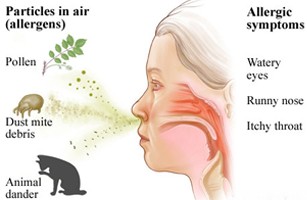Indications:- Analgesic Drug
PCM + Promethazine

PCM + Promethazine
SUSPENSION PRESENTATION:
Each 5 ml contains:
Paracetamol IP 125 mg
Promethazine Hcl IP 5 mg

Promethazine is an ethylene derivative of Phenothiazines with potent antihistaminic properties.Promethazine is not used as anti-psychotic; it is used as anti-histamine. Promethazine is a H1 receptor blocking agent.
Paracetamol belongs to a group of medicines known as analgesics or pain killer. It is use to relieve mild to moderate pain.
RATIONALE OF COMBINATION
Antihistamines are used to prevent the symptoms of hay fever and other allergies. They may also prevent some symptoms of common cold such as sneezing and runny nose. They work by preventing the effects of histamine.
Analgesics are use to relieve pain, headache, aches and fever.
Antihistamine and analgesics are use in combination to relieve nasal congestion, sinus sneezing runny nose, pain of colds, fever, headache and aches.

This combination is used for: 
- Pain
- Allergic rhinitis
- Allergic conjunctivitis due to inhalant allergens and foods
- Urticaria
- Angioedema
- Hay fever
- Vasomotor rhinitis
- Allergies and common cold
- In surgery (sedative)
- Hemolytic disease of the newborn
- Motion sickness.


Promethazine:
Absorption: Promethazine is well absorbed from the gastrointestinal tract and shows clinical effects within 20 min after oral administration.
Metabolism: Metabolized in liver to sulfoxide of Promethazine and N-demethylpromethamine.
Elimination: Renal excretion
Protein Binding: 93%
Half Life: 16-19 h
Paracetamol:
Absorption: It is readily absorbed from GI tract and achieves peak plasma concentration in 30 to 60 minute. But it is incompletely available to systemic circulation after oral administration due to first pass metabolism.
Protein Binding: 10-25%
Half Life: 2 h
Metabolism: It metabolism extensively by liver and to minor extent by intestine.
Elimination: Urine (85-90%)

Promethazine treats allergic reactions and motion sickness. Also used before and after surgery and other procedures to make you sleepy, control pain, or prevent and control nausea and vomiting.

 Promethazine is an anti-histaminic. It does not suppress antigen-antibody reaction in body, but block the effect of released histamine, an important protein involved in many allergic reactions. They effectively control certain immediate type of allergic conjunctivitis and Angioedema of lips, eyelids, etc.
Promethazine is an anti-histaminic. It does not suppress antigen-antibody reaction in body, but block the effect of released histamine, an important protein involved in many allergic reactions. They effectively control certain immediate type of allergic conjunctivitis and Angioedema of lips, eyelids, etc.

- Burning sensation
- Sleepiness
- Hallucination, agitation
- Nausea, vomiting
- Stomach pain
- Convulsions
- Jaundice
- Impotence

This medicine may interact with:
- CNS Depressants
- MAO inhibitors
- Epinephrine
- Anti-cholinergic

- Promethazine HCL oral solution is contradicted for use in pediatric patients less than two years of age.
- Antihistamines are contraindicated in the treatment of lower respiratory tract symptoms including asthma.
- Promethazine HCL is contradicted in condition like Epilepsy, Glaucoma, and prostatic hypertrophy.
- Promethazine oral solutions are contradicted in patients who are in coma state and in individual known to be hypersensitive to Promethazine or other Phenothiazines.

Oral suspensions are not to be used more than one month after opening.